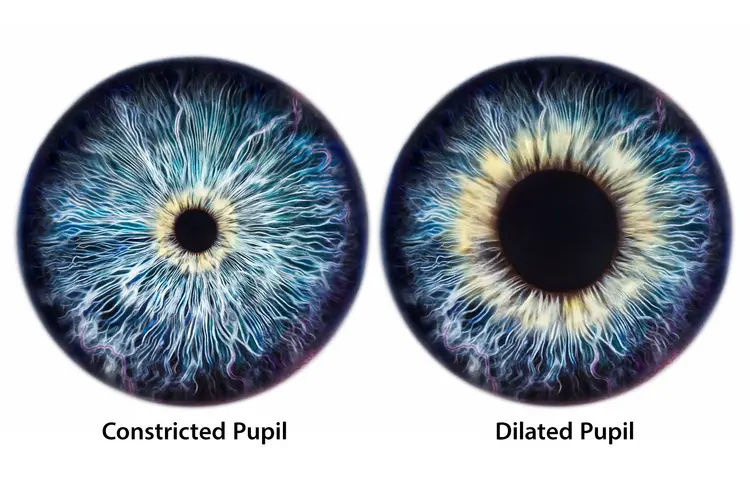Blinded in Braddock: A Nighttime Driving Mystery in Virginia
- Chen Yushan

- Jul 21, 2025
- 3 min read
Updated: Jul 27, 2025

It happened one night on Braddock Road. I was waiting at a red light, facing oncoming traffic, when a pair of high beams hit me like a flashbang. Instinctively, I flicked my own lights in response. Just a gentle reminder, I thought. But when the car turned left and passed by, I saw the markings. It was a police SUV. That was the moment I realized something wasn’t right. It wasn’t just my timing—it was how I was seeing the road.
I’ve driven in California, Maryland, even through desert highways in Arizona and snowy roads in Minnesota and Vermont. But Virginia at night feels like a different story. The road markings disappear, entrances to highways merge without warning, and there are long stretches with no reflectors or shoulders. Add a drizzle of rain and I’m gripping the wheel like it’s a roller coaster ride.
At first, I blamed my car. Maybe my headlights were aging. But when I borrowed my friend’s car one evening, everything suddenly looked clearer. The lines, the signs, even my confidence behind the wheel returned. Then he drove my car and told me everything looked perfectly fine to him. That’s when I realized the issue might be... me.

Without vision insurance, I went to Costco for an affordable eye exam. The optometrist checked everything—vision, eye pressure, and even my pupils. Turns out my myopia and astigmatism had only increased slightly, not enough to account for what I was experiencing. My pupils, he said, were healthy and evenly shaped. But when he explained that dilated pupils let in more light and could make glare feel worse, I had a small aha moment. It wasn’t a disease. It was sensitivity amplified by the environment.
Curious to understand what was making night driving so uncomfortable, I began digging into the numbers. According to the latest data from the Federal Highway Administration, SUVs and light trucks make up 62.3% of registered vehicles in Virginia—higher than Maryland’s 59.2%, California’s 55.7%, and D.C.’s 48.2%. Meanwhile, sedans like mine account for only 37% of vehicles on Virginia roads. On roads filled with taller vehicles, drivers in lower-profile cars are frequently hit with direct glare from elevated headlights.
The issue might not be just what’s behind me, but also what’s in front. My two-door coupe has a factory-installed window tint on the front windshield. I looked up the laws: California allows a minimum of 70% light transmittance for front windows, while Virginia permits as low as 35% with medical authorization. I now plan to visit an auto shop to measure how much light my tint actually blocks—because at this point, I need all the clarity I can get.
So now I avoid night driving when I can. I’m still exploring options, like anti-glare glasses or a window tint test. But the real lesson might be this: in Virginia, the challenge of night driving sometimes isn’t about you. It’s about everything else — the design of the roads, the types of vehicles around you, and how the environment amplifies small issues into real visibility problems. You can be a cautious driver, have decent eyesight, and still feel like you’re driving blind. All it takes is one bright blue SUV barreling toward you, refusing to dim its lights.
Sources
· California Vehicle Code § 26708. Retrieved from https://leginfo.legislature.ca.gov/faces/codes_displaySection.xhtml?lawCode=VEH§ionNum=26708
· Costco Optical. (2025). Comprehensive eye exam consultation. 1200 S Fern St, Arlington, VA 22202.
· Federal Highway Administration. (2024, November). State motor-vehicle registration. U.S. Department of Transportation. https://www.fhwa.dot.gov/policyinformation/statistics/2023/mv1.cfm
· U.S. Department of Transportation, Federal Motor Vehicle Safety Standards. Standard No. 205 – Glazing Materials (49 CFR §571.205). Retrieved from https://www.ecfr.gov/current/title-49/subtitle-B/chapter-V/part-571/subpart-B/section-571.205
· Virginia Department of Motor Vehicles. Medical Authorization for Sun-Shading Window Tinting. Retrieved from https://www.dmv.virginia.gov/licenses-ids/license/medical/sunshading
· WebMD. Why Get Your Eyes Dilated? Retrieved from https://www.webmd.com/eye-health/why-get-eyes-dilated
· Xu, J. (2025). Interview about night driving experience in Virginia. Georgetown University alumnus.



Comments